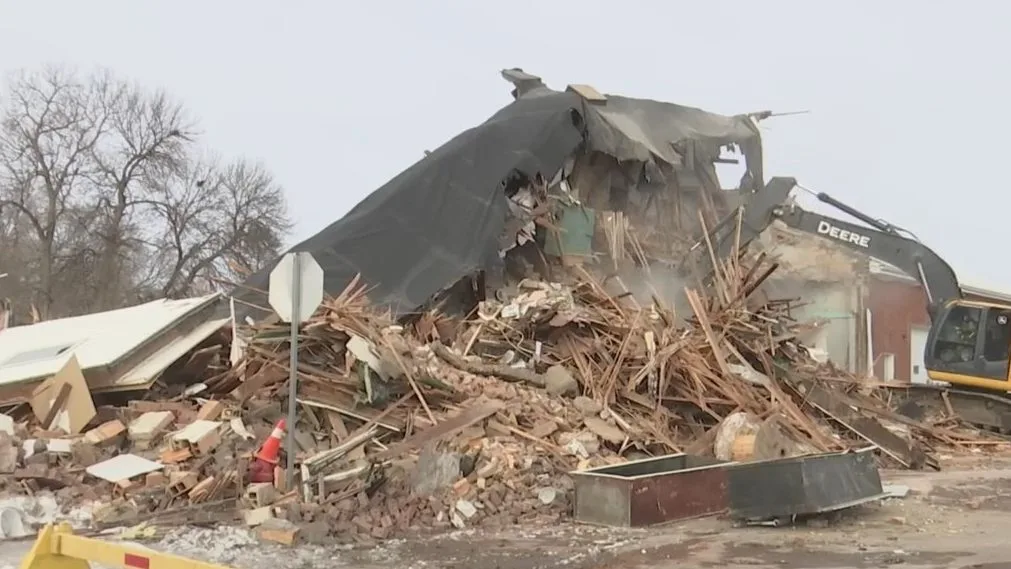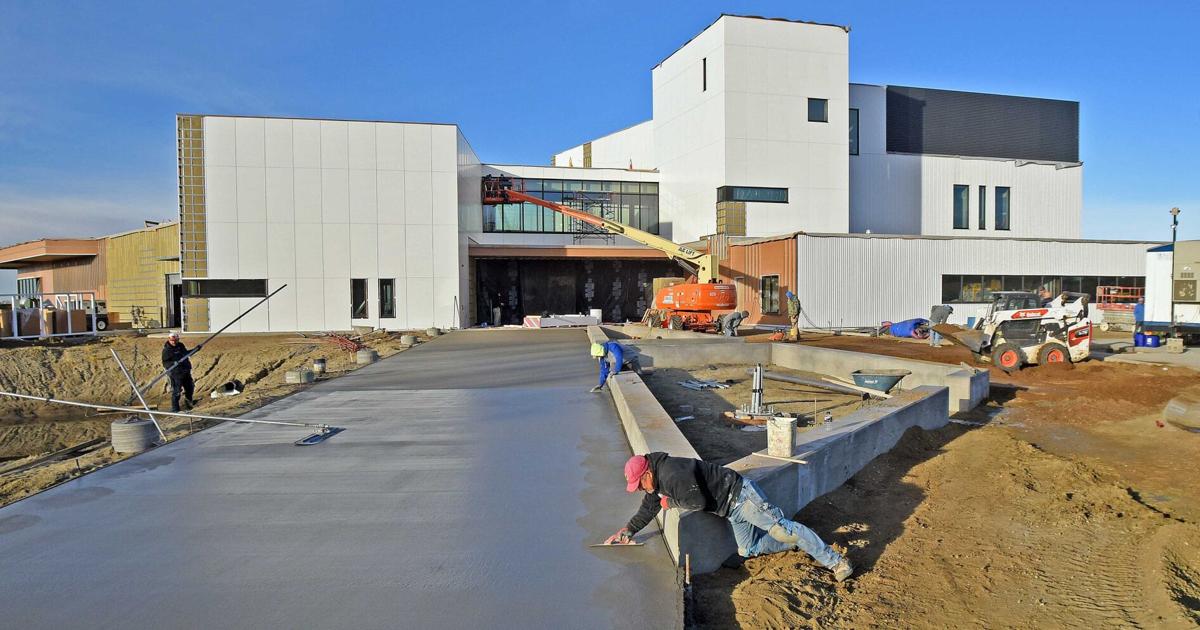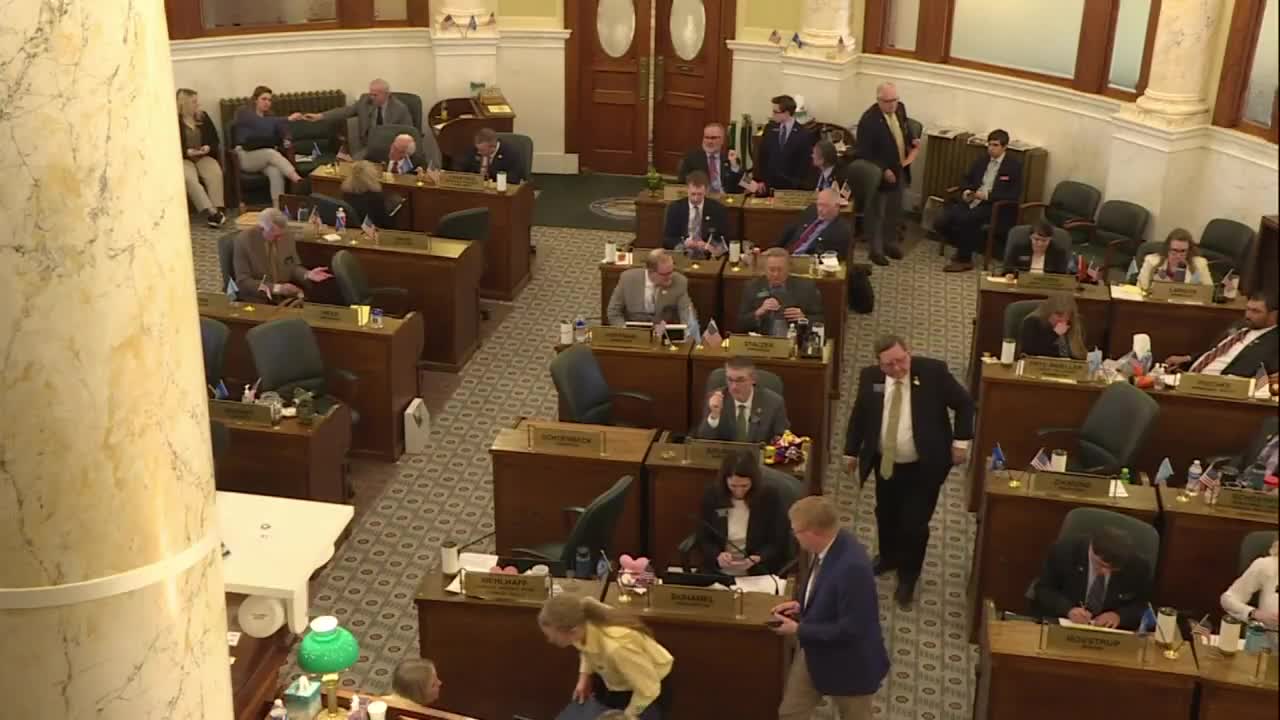SIOUX FALLS, S.D. (KELO) — Two years ago, the ballot measure to legalize marijuana (Amendment A) won 25 counties in South Dakota and passed by more than 30,000 votes.
On Tuesday, another ballot measure to legalize marijuana (Initiated Measure 27) won only eight counties and lost by nearly 20,000 votes. IM 27 won Brookings, Buffalo, Clay, Dewey, Minnehaha, Oglala Lakota, Todd and Ziebach Counties.
So what were the main changes from the 2020 vote to 2022?
A combination of factors including louder opposition, lower voter turnout and medical marijuana already being legal likely contributed to the difference.
There was stronger, organized opposition to legal marijuana in 2022 than in 2020. Protecting South Dakota Kids, chaired by Jim Kinyon, reported raising $427,186 in its pre-election filing and spent $351,740 mostly on advertising.
South Dakotans for Better Marijuana Laws, chaired by Matthew Schweich, reported a pre-election income of $492,647 and spent $262,135 mostly on advertising.
Schweich said he believed a lack of more funding, especially from national organizations, hurt the Yes on 27 campaign. He also pointed to low voter turnout and national concerns about crime rates.
“When you’re a yes campaign, you’ve got to go out and collect signatures to put the initiative on the ballot. It’s very expensive,” Schweich said. “I think our opponents took a page out of the political playbook, which is using fear. Sadly, fear works really well in politics.”
Kinyon, a counselor with Catholic Social Services in Rapid City, correlated legal marijuana for adults to higher use in kids and more crime.
“We know how destructive marijuana is to the residents in states that have already legalized the drug,” Kinyon said in a news release. “We presented a well-researched, fact-based informational outreach to as many communities across the state as we could physically get to the last three months.”
Kinyon told KELOLAND News Wednesday said he praised God and the good judgment of the people of South Dakota.
“You just can’t imagine the great relief, it is for me to begin to say this is clearly, clearly not the will of the people in the state of South Dakota,” Kinyon said. “This is a resounding no to recreational marijuana.”
In a news release, Protecting South Dakota Kids thanked the more than 400 volunteers and donors that helped campaign against IM 27. Some of those volunteers included public officials like Sioux Falls Mayor Paul TenHaken, Minnehaha County Sheriff Mike Milstead and other local public officials involved with schools and churches voiced their opposition to IM 27.
TenHaken admitted he was not focused on legal marijuana when it was on the ballot in 2020. “I was pretty busy in 2020. I was getting death threats over mask mandates and other things and was preoccupied with COVID,” TenHaken said during a news conference opposing IM 27. “We also saw the effects of what I consider voter confusion with the lumping of medicinal and recreational on one sign, on one TV ad and on one ballot.”
Kinyon said he was inspired by the coalition of people that campaigned against IM 27.
“This was a unified response from the people that deal with it every day,” Kinyon said. “Our healthcare providers, our law enforcement officers, a couple of good mayors that had the courage to communicate about what they know and what they’ve seen.”
Jeff Griffin, the president and CEO of the Greater Sioux Falls Chamber of Commerce, said workforce concerns were the reason it opposed IM 27. “Marijuana testing is not the same as alcohol testing or impairment,” Griffin said. “The less we need to deal with impairment in the workplace the better and the healthier the workforce is.”
As TenHaken brought up, medical marijuana was on the ballot twice in 2020 in both Amendment A and Initiated Measure 26. IM 26, which was strictly an initiated measure dealing with medical marijuana, passed by a 70%-30% margin in 2020.
Medical marijuana is legal in South Dakota and the Department of Health reports 177 approved practitioners and 4,634 patient cards. The Flandreau Santee Sioux Tribe in Flandreau also runs a medical marijuana program through its Native Nations dispensary. The tribe has issued more than 10,000 medical cards.
Proponents for IM 27 said passing legal marijuana would help medical marijuana become more available, but opponents said people needing marijuana for medical reasons wouldn’t be stopped.
Schweich said he didn’t believe medical marijuana played a role in the outcome of IM 27.
“There’s some voters who think that we have medical so we don’t need anything more,” Schweich said. “There are many voters who are dissatisfied with how the medical program is working and there’s people that are shut out of it entirely.”
Schweich said he has never believed South Dakota voters didn’t know what they were voting on in 2020.
Kinyon said he was never more proud of South Dakotans and said he believed voters were confused by Amendment A in 2020.
“They’ve done everything they can do to try and attach this back to medical marijuana,” Kinyon said. “This was a clear campaign about the facts about the impact on states. This is no longer an experiment. We know what this does and we can look at that data.”
Schweich said he was proud of everything South Dakotans for Better Marijuana Laws has accomplished since 2020 and defending the medical marijuana law.
“Now our opponents stand at press conferences and insist no one’s really going to jail and insist the medical cannabis program is really accessible,” Schweich said. “We’ve changed the terrain of this debate.”
More than 415,000 votes were cast on Amendment A in 2020, while more than 68,000 fewer people voted on IM 27 Tuesday with a total of 346,830 votes cast.
Statewide, voter turnout was higher for the 2020 Presidential election (427,529 ballots cast) compared to the 2022 midterm election (354,652 ballots cast).
In Minnehaha County, the state’s largest county by population, there were 74,335 votes on IM 27. In 2020, Minnehaha County voters casted 90,676 votes on Amendment A, more than 15,000 additional votes.
On Oct. 6, President Joe Biden issued a pardon on prior federal offenses of simple possession of marijuana, urged governors to do the same with state offenses and called on the Secretary of Health and Human Services and the Attorney General to initiate administrative process to review how marijuana is scheduled under federal law, where it is currently classified as a Schedule I drug.
Marijuana remains illegal under federal law and 19 states have voted to legalize.
On Tuesday, legal marijuana was on the ballot in five states, including South Dakota. Maryland and Missouri became the 20th and 21st state to legalize marijuana, while Arkansas and North Dakota joined South Dakota in opposing legal marijuana ballot measures.
On the topic of what’s next, Schweich said he’s exhausted from the past few months of campaigning in favor of IM 27.
“This is going to be back on the ballot in 2024. If we don’t put it on the ballot somebody else will,” Schweich said.











